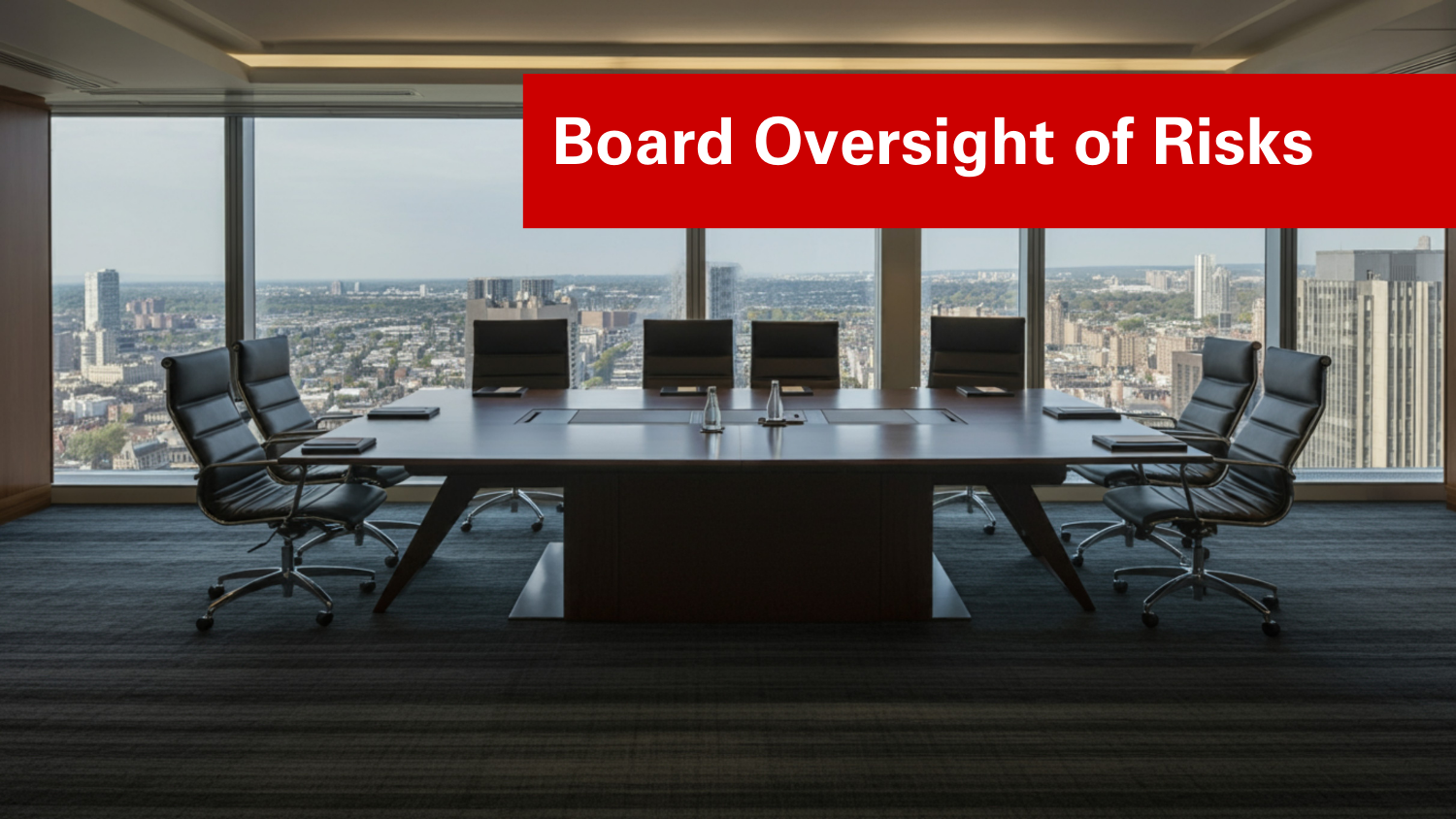Where are the Directors?!?
In light of the current crisis, this Conference Board Review article focuses on the need for more to ask “Where were the boards?” This article, authored by David Zweig, analyzes whether corporate boards are really doing their job. The author, David Zweig, co-author of Money for Nothing: How the Failure of Corporate Boards is Ruining American Business and Costing Us Trillions, replies with a description of director failure that he attributes to director submission to CEO commands.
Directors often forget their responsibility is to shareholders and, instead, focus on their likability by other board members and corporate management. Zweig questioned several board members who admitted the boardroom was not their office and that the CEO ran board meetings. Studies have shown that board members who dissent from CEO opinions are ostracized in social situations and often ignored during board meetings. It is apparent that some CEOs are dominating some board decisions and directors forget that the board is the CEO’s boss.
Most (95%) directors believe they are doing an “effective or very effective job”. However, only 10-20% of CEOs view directors as effective. Other surveys show that 63% of CEOs think that directors do not know enough about the company’s business and need to spend more time becoming familiar with operational goals and objectives. This could explain why directors are likely to follow suit with CEO decisions because they fear looking foolish in the boardroom. Although directors are highly educated and have successful careers, Zweig points out that they sometimes fall into the same mistakes that have been made in the past including:
- Compensation plans that reward failure,
- Acquisitions based on overly optimistic assumptions,
- Condoning a lax ethical tone at the top,
- Ignoring blatant conflicts of interest,
- Neglecting to prepare for crises, and
- Missing obvious strategic shifts in the market.
Since most of these mistakes are not attributable to a director’s competence, they must arise from their behaviors and chosen approaches to solve such problems. Board members are not subject to psychometric tests or simulations that evaluate their thinking and decision making skills before their appointment to the board, as are some CEOs. Zweig also notes that individuals who avoid monitoring and controlling behaviors are more likely to be recommended to join the board, whereas those who ever disagreed with the CEO were absolutely not recommended for a board seat.
In concurrence with his theory that director failures arise from their behavior and decision making skills, Zweig mentions that people often attribute their successes to their personal skills and talent, but blame their failures on external factors. It has been noted that boards overpay executives when economic conditions are rising, but blame downturns in the market for a CEOs’ poor performance.
The idea of how humans naturally think explains many of the actions of board members during recent years. Having power gives us confidence and overconfidence results in taking risks without fully considering the potential negative effects. Emotions also play a huge part in the decisions we make. Directors may allow their emotions to control their decisions and they may seek to avoid angering the CEO by agreeing with his or her suggested policies.
Since board failures cannot be solved with procedural solutions due to their behavioral nature, how can we change the way the board thinks and behaves? Zweig’s suggested solution to this problem is to require greater accountability of the board to their shareholders. In order to start reaching a solution to the problem, directors must first admit they have a problem making decisions and challenging corporate management. The group dynamic is also an important factor—directors should not be making any decisions individually with the CEO.
If we expect and demand more of board directors, they will be more accountable for their actions. Zweig suggests a “superdirector” who is independent and understands the business and how groups work. These directors must be willing to stand up to CEOs and ask questions that challenge their decisions. It is essential for directors to act as they are intended–as the CEO’s boss. Zweig and his co-author, John Gillespie, suggest training in the following four areas in order to be a successful board member:
- Industry sector
- Finance and accounting skills
- Legal/regulatory requirements of corporate governance
- Dynamics of group processes pertaining to power, decision-making, and risk
The only way to solve the problem, according to this thought piece, is to adapt director mentality and remind them that their most important duty is to uphold the best interests of the shareholders of the corporation and to govern the actions of executive managers.
Original Article Source: “The Board That Couldn’t Think Straight“, David Zweig, 2010


